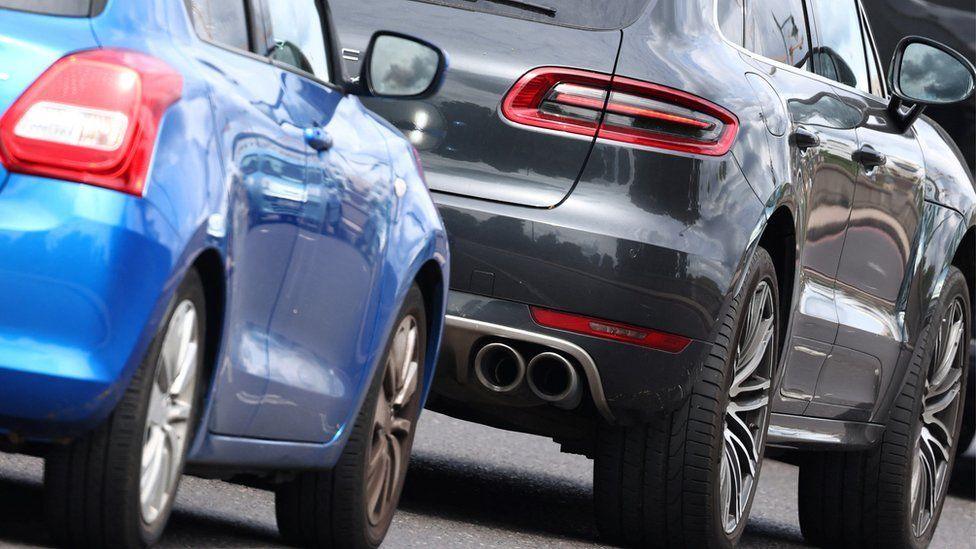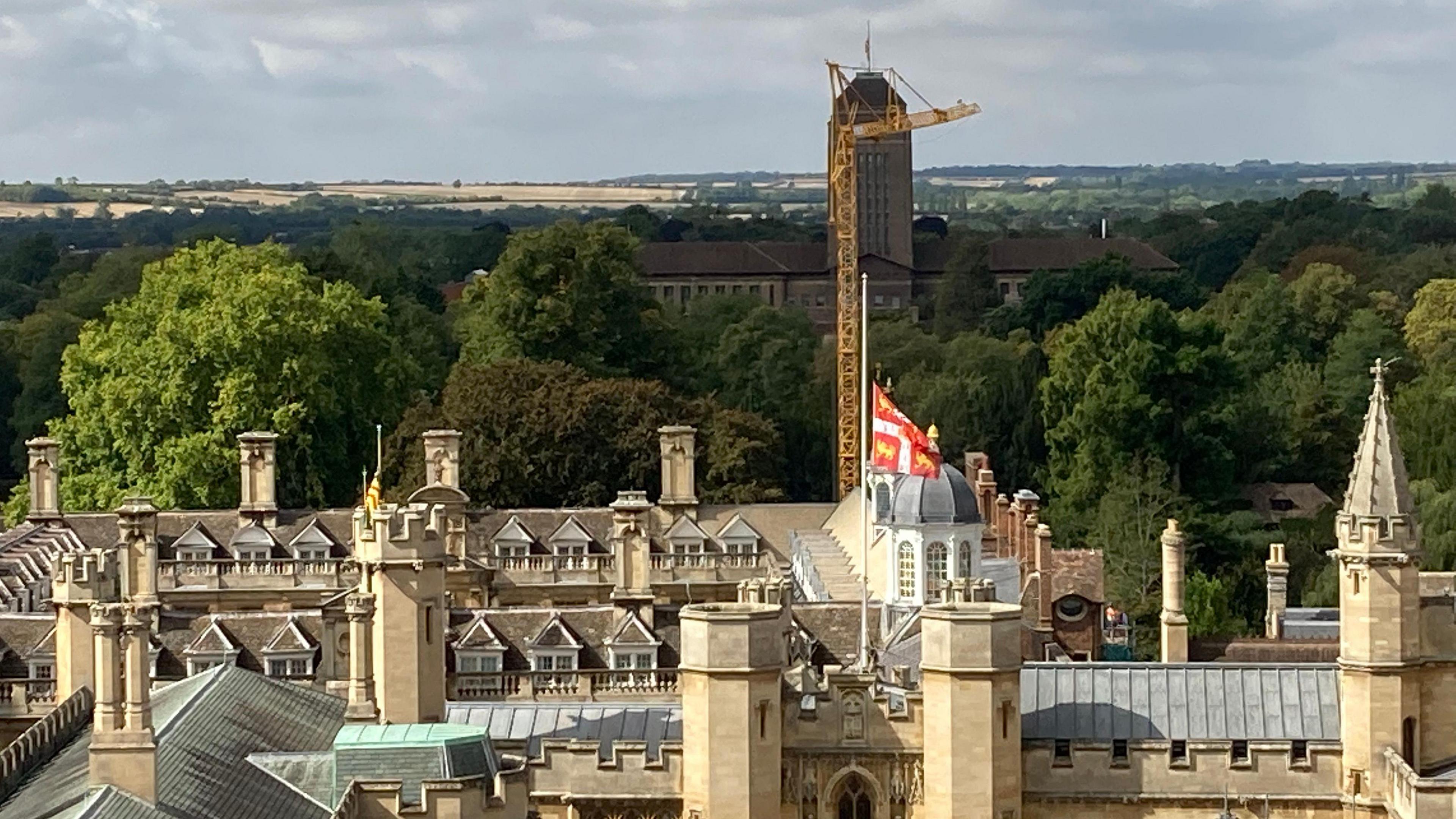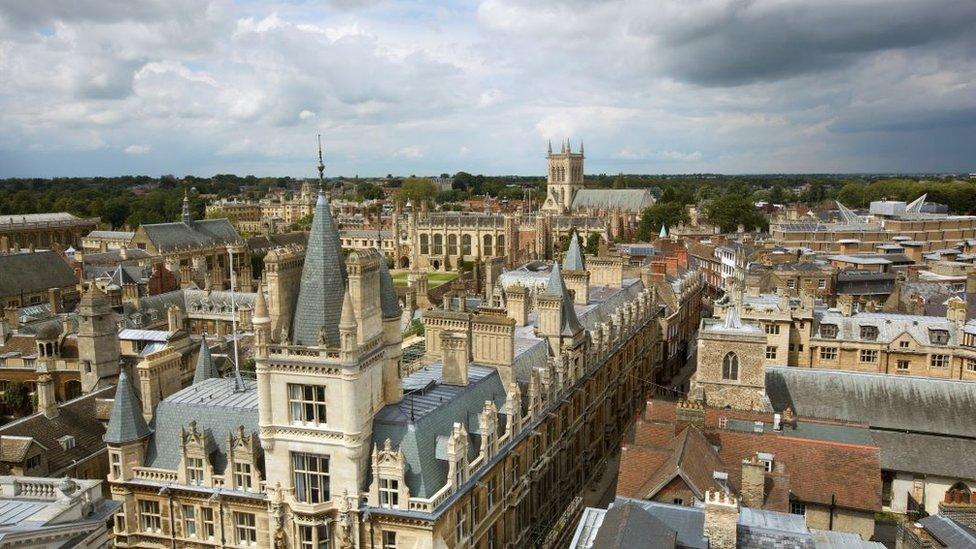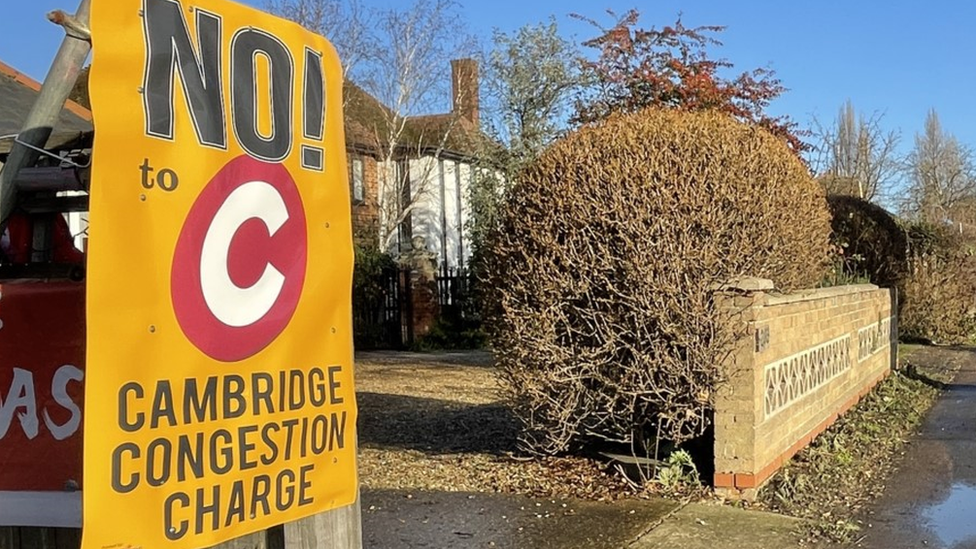Funding bid for uni city's light railway project

Traffic congestion remains a problem in Cambridge and business Cambridge Connect believes its light rail network plan could help alleviate this
- Published
A company proposing a light rail network for a university city and the area around it has called on the government to fund a £5m feasibility study into the scheme.
Cambridge Connect wants to link Cambridge city centre to its campuses and science parks and out to housing developments and includes a short tunnel.
Director Colin Harris has asked Angela Rayner, Secretary of State for Housing, Communities and Local Government, to include the scheme in the autumn budget and spending review.
A spokesperson for the Ministry of Housing, Communities and Local Government said it had received the letter and would respond in due course.
Mr Harris said: "No strategy for the future of Cambridge can work without a radical modal shift away from the motor car."
In May, the former Conservative government unveiled proposals to build up to 150,000 homes in the Cambridge area.
The plans were met with opposition from local councils, while the Environment Agency raised concerns about water supply.
In August, Matthew Pennycook, the new Labour minister for housing, said he wanted to see significant growth in the area because it was being "constrained economically by the lack of housing".
Cambridge Connect, which was founded in 2015, called light rail vehicles "a proven and practicable form of rapid transit, adopted throughout Europe in numerous cities of a type and size similar to Cambridge".
It described the vehicles as "essentially interchangeable" with trams.
Initially it wants to link Trumington to Cambridge University's housing estate Eddington via the Biomedical Campus. Later phases could reach new towns Cambourne and Northstowe, as well as Haverhill, Suffolk.
Mr Harris said: "Light rail can provide a core backbone of fast, reliable, clean and adaptable public transport that when integrated with other modes such as trains, buses, coaches and active travel will serve the whole community well while unlocking our full potential as a key centre for European science and technology."
But further studies on its viability for the area are now needed, which is why it has approached Ms Rayner.
Get in touch
Do you have a story suggestion for Cambridgeshire?
Follow Cambridgeshire news on BBC Sounds, Facebook, external, Instagram, external and X, external.
- Published2 August 2024

- Published6 March 2024

- Published18 October 2023
